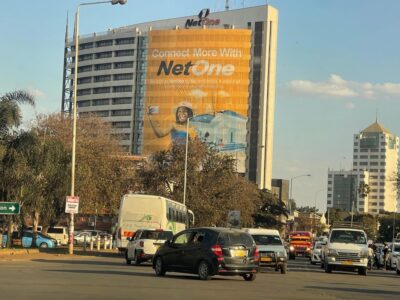Zimbabwe’s mobile telecommunications sector recorded a sharp 88.8% increase in nominal revenue in the fourth quarter of 2024, with earnings rising from ZWG 3.40 billion in Q3 to ZWG 6.42 billion.
According to the Postal and Telecommunications Regulatory Authority of Zimbabwe (POTRAZ) report, the jump was largely driven by the devaluation of the Zimbabwean dollar. The exchange rate shifted from USD1:ZWG13.9987 to ZWG24.3902 at the start of the quarter.
After adjusting for inflation and currency fluctuations, real revenue growth stood at 24.07%. The significant increase in nominal revenue is primarily due to the exchange rate shifts during the quarter.
By Ruvarashe Gora
At the same time, operating costs for Mobile Network Operators (MNOs) climbed by 70.95%, from ZWG 1.61 billion to ZWG 2.76 billion. In real terms, this translated to a 12.33% rise in costs, highlighting some operational efficiency amid economic headwinds.
Capital expenditure also grew, increasing 39% from ZWG 607 million to ZWG 842 million. However, when adjusted for inflation, it reflected a real decline of 8.84%, suggesting more cautious investment behavior across the sector.
Econet Wireless Zimbabwe, the country’s largest mobile operator, posted a 69% revenue boost during the same period. The growth was driven by higher mobile network activity and its expanding fintech services. The company also reported a 20% increase in voice traffic and a 36% rise in data consumption, signaling a growing appetite for digital services.
Despite the gains, the industry continues to face structural challenges. These include limited access to foreign currency for network upgrades, affordability concerns linked to low household incomes, and operational setbacks such as power outages.
POTRAZ emphasized that sustained growth will depend on addressing these barriers through long-term infrastructure investment and supportive policies.














Comments